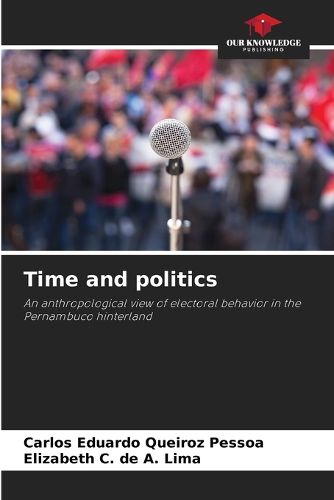Readings Newsletter
Become a Readings Member to make your shopping experience even easier.
Sign in or sign up for free!
You’re not far away from qualifying for FREE standard shipping within Australia
You’ve qualified for FREE standard shipping within Australia
The cart is loading…






The research focused its analytical perspective on the socio-anthropological understanding of the social relations established in the city of Afogados da Ingazeira, in the northeastern interior, 386 km from the capital of Pernambuco. Nevertheless, thinking about political practices through the mobilization of sociocultural relations became relevant at a time when elections gained notoriety as a fundamental theme in any subject related to politics. The primary question was to seek to understand how voters, the main targets of the electoral campaign, experience the electoral period, especially how they understand politics and construct their political decision when defining their vote. The characterization of the Brazilian voter's vote and the explanation of the direction of the vote is one of the most relevant factors for the institution of Brazilian democracy. In this sense, we sought to understand the political phenomenon from a socio-anthropological perspective, with the object of study being to analyze the dynamics of voting and electoral behavior based on the motivations and networks of sociability constituted in the socio-political context of Afogados.
$9.00 standard shipping within Australia
FREE standard shipping within Australia for orders over $100.00
Express & International shipping calculated at checkout
Stock availability can be subject to change without notice. We recommend calling the shop or contacting our online team to check availability of low stock items. Please see our Shopping Online page for more details.
The research focused its analytical perspective on the socio-anthropological understanding of the social relations established in the city of Afogados da Ingazeira, in the northeastern interior, 386 km from the capital of Pernambuco. Nevertheless, thinking about political practices through the mobilization of sociocultural relations became relevant at a time when elections gained notoriety as a fundamental theme in any subject related to politics. The primary question was to seek to understand how voters, the main targets of the electoral campaign, experience the electoral period, especially how they understand politics and construct their political decision when defining their vote. The characterization of the Brazilian voter's vote and the explanation of the direction of the vote is one of the most relevant factors for the institution of Brazilian democracy. In this sense, we sought to understand the political phenomenon from a socio-anthropological perspective, with the object of study being to analyze the dynamics of voting and electoral behavior based on the motivations and networks of sociability constituted in the socio-political context of Afogados.